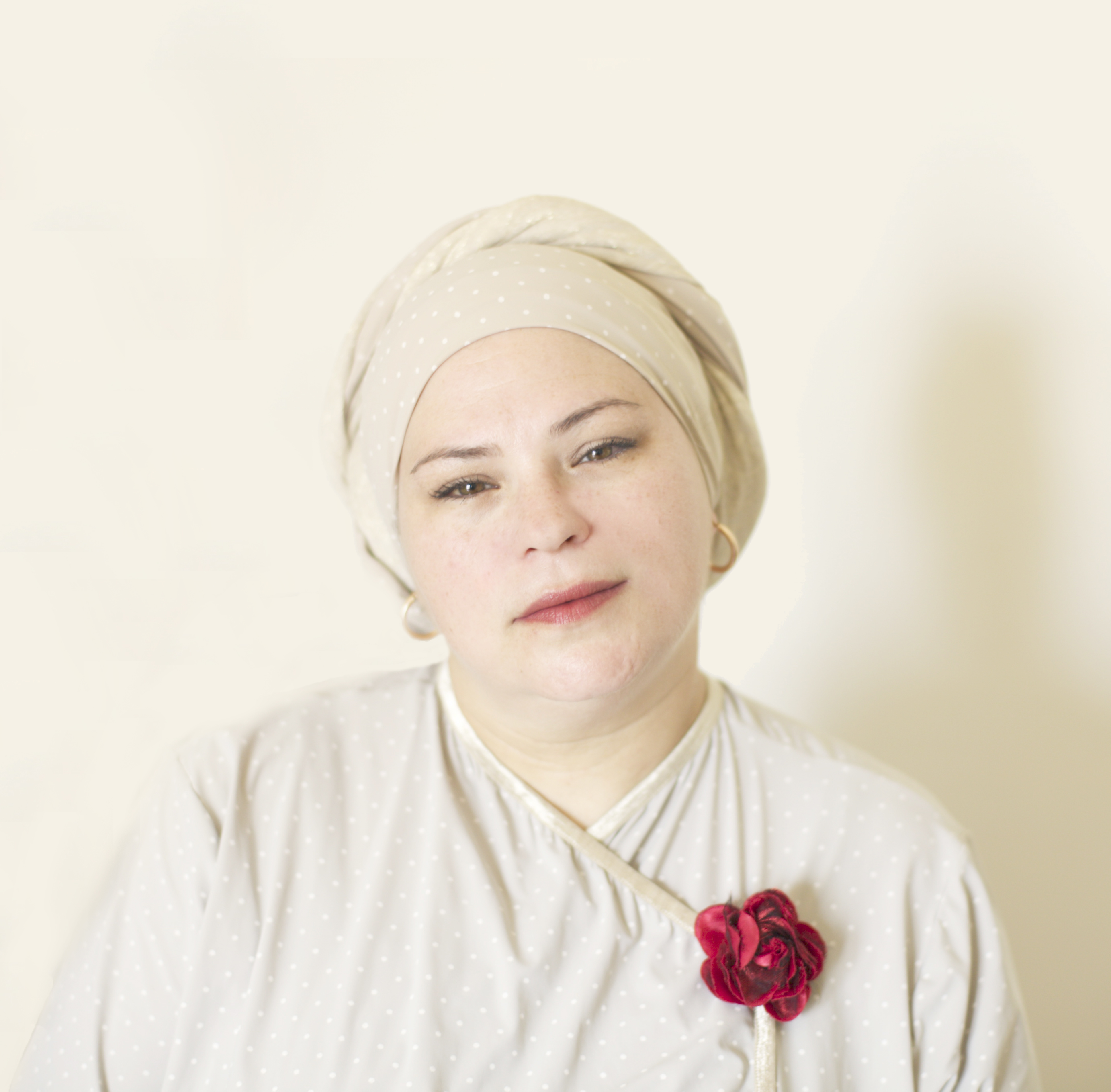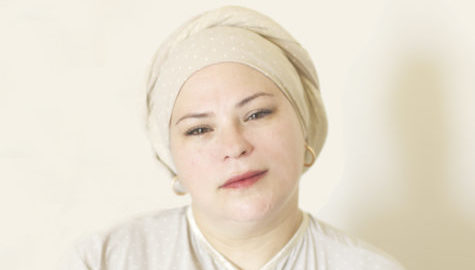
Israeli-American Ultra-Orthodox filmmaker Rama Burshtein’s debut, Fill the Void, won the Israeli Oscar for Best Picture four years ago. Now, Burshtein is back with a very different film, The Wedding Plan, which is, yes, also about a wedding. Jewcy caught up with Burshtein at the Tribeca Film Festival to discuss her unconventional new comedy that follows a young woman named Michal who is so desperate to get married that she plans a wedding, invites her guests, and only then starts working on the most crucial element: finding a groom.
Jewcy: What is it about weddings that appeals to you so much?
It’s not about weddings, it’s about love. In my world love comes with marriage.
Jewcy: This is quite the premise – a woman wants to get married and doesn’t care that there’s no groom. Where did you come up what that idea?
I have no idea. I think that we lack hope, that we’re too committed to despair. I really wanted to do something about that. There’s nothing like romantic comedy to make it digestible. You can receive it better in a setting like this. We all feel very strongly. Wherever we are, the highs and lows are so close that you can be at both places at the same moment, and I wanted to show that in film.
Jewcy: It’s nice to see a wedding presented in a more comedic format. Fill the Void wasn’t particularly funny.
Not at all. It was like a Swedish film. When we shot it, I couldn’t believe that I was doing this kind of film. This comedy is more me.
Jewcy: Was Michal inspired by anyone in particular? She’s such an incredible protagonist who doesn’t really experience the world around her in the way that everyone else does, and that’s what makes her so great.
There are a lot of people. My casting director’s name is Michal. She looks like her, and she’s still not married. She’s secular and she still didn’t find someone. On the wedding invitation Michal sends out in the film, her last name is my maiden name. My sister Hadar is not married. There’s a lot of people in terms of inspiration. So many people in this world who don’t find their partner, and they’re 30, 35, or 40. It’s something that we really see a lot today. They’re my inspiration and I hope that they can get something out of it to help them move in different directions.
Jewcy: Do you think that this is a film that plays differently to religious and secular audiences, Jewish or non-Jewish?
Definitely different. The surprising thing is that it works for all them, in very different ways. For the religious, it’s much harder to grasp than the secular. They have a dialogue with HaShem, they need to work in a different way to understand this. Secular people just want to make me a guru in Israel. The surprising thing is that the non-Jews connect to the belief in the film.
Jewcy: Most movies about observant characters that make it to a mainstream audience are about fighting with that observance. Both of these movies have nothing to do with that. It’s about fighting with cultural expectations and not whether or not to be observant. Was that important to you?
It’s always a dialogue with the inside, either someone trying to get in or someone trying to get out. That’s the reason I went out to make films. This is the voice I have. It’s okay that people interpret, but it’s not okay that it’s the only interaction people have with observance on film.
Jewcy: How did you find Noa Kooler, who plays Michal?
For Fill the Void, you need a young girl. You could actually find her on the street. Hadas Yaron was in the army when I cast her; she wasn’t in acting school. This character is much more complicated, and is at the age where you can’t really find an unknown. That was a bit of a turnoff because I wanted to find someone very fresh, and at this age usually it’s the peak of a career, if not towards the end.
I saw all the actresses in Israel, and Noa was the one who I found who could make you laugh and cry in the same scene without a cut. It was bashert as soon as she walked in. I saw it in the audition. No one gave her a leading role until this. No one gambled on her, and now, today, she’s not here in New York because she has a leading role in a very primetime show that’s shooting now. Everyone is giving her leading roles now. She went through a wall herself at the age of 36 and she’s starting her career. It’s amazing.
Jewcy: I won’t spoil the ending for our readers, but I loved it. Was there ever a time that it was going to turn out differently?
No. In order for it to be built how it’s built, you have to know how it’s going to end. Otherwise it won’t work. Secular people told me that, in watching it, they didn’t think that it would follow through and that they would be able to believe any kind of ending, and then suddenly they found themselves on the other side of the wall. They don’t know at what moment they started to buy it. That’s what I feel is the divine thing in this film, you suddenly find yourself on the other side of the wall. It’s not mine, I can’t repeat it, it’s just me being a visitor in God’s world.
Jewcy: You used the song Im Eshkachech over and over in Fill the Void. Here, you used more secular Israeli music.
First of all, you have a rock star as one of Michal’s potential husbands. The words are the movement of this film, between coming and going. The package is a romantic comedy, and that can’t exist without a song that goes very fast into your heart and you start singing it and want to hear it again. The guy that made the music, Roy Edri, made the music and the score. He’s very talented, not in terms of doing something original, but everything he does goes very fast to the heart. Seconds, and you’re already in it. This is a tough pill to swallow– you need such a package, otherwise it’s very depressing.
Jewcy: Are there other movies about either weddings or love that might have inspired this?
Yes, a lot. I thought Silver Linings Playbook was great. There was something about the integrity and the sincerity that I really enjoyed. In a way, what I’m doing now is really more of a salad. Bridget Jones’ Diary has two men, both of whom are nice-looking. In that film, you know who she’s going to end up with, but here you have no idea. It’s a suspense film, not just a romantic comedy. People are on the edge of the chair trying to see how it’s going to work itself out. I don’t think there’s any one direct influence. I love watching romantic comedies.
Jewcy: What has the response been to the film?
It’s not out in the world yet. It’s starting now. In Israel, it’s already finished, so that’s all we know. People loved it in Israel, you can tell from the admissions. I don’t know how it’s going to go over in the world, but in Israel, it has a kind of cult following. I would get e-mails from people who saw it six times. I think it will resonate for a longer time there. It’s out here and in London, and it’s starting in other places.
Jewcy: What has your experience been at Tribeca?
We had the premiere a few days ago. You can sit as a director in the screening and you get this strong feeling that they hate it. And then it ends, and they clap their hands, and they don’t let you leave. You were a total failure, and now you’re a total success with only two minutes in between. I told my husband that I think I’m getting a bit old for that rollercoaster.
Jewcy: What’s next?
TV. I feel that today TV is very different from what it used to be. It’s like a very long film. There are really great filmmakers making great shows, like Paolo Sorrentino doing The Young Pope. It’s an amazing show like a long film, ten hours with a character. The side stories get their own space, which is so interesting for me. Without the touring and the festivals, I think I’ll like it. It’s good for me.
The Wedding Plan had its New York Premiere at the Tribeca Film Festival earlier this week as a Viewpoints selection. It opens May 12th in New York and Los Angeles.
Photo by Lea Golda Holterman









gametoponline.sa.com
наушники от шума
9v1mgv
https://avenue17.ru/kompressornoe-oborudovanie
теплый пол в ванной
теплый пол купить
купить теплый пол под плитку
кино 2022 смотреть онлайн
https://qwe.bet/ec/ecuabet/
cqv011
I am glad for commenting to let you be aware of of the outstanding experience my wife’s princess encountered reading your site. She came to find plenty of issues, with the inclusion of how it is like to possess an excellent teaching mood to have a number of people very easily fully grasp specific specialized things. You actually did more than our own desires. Many thanks for displaying the powerful, trustworthy, edifying and as well as easy tips about your topic to Ethel.
Can I recently say that of a relief to seek out someone that truly knows what theyre preaching about on the internet. You actually discover how to bring a concern to light making it essential. More and more people must look at this and understand why side in the story. I cant think youre not more popular since you also absolutely provide the gift.